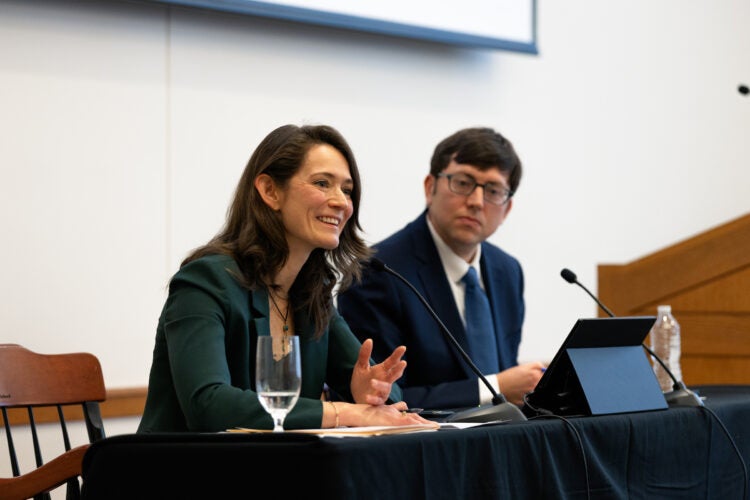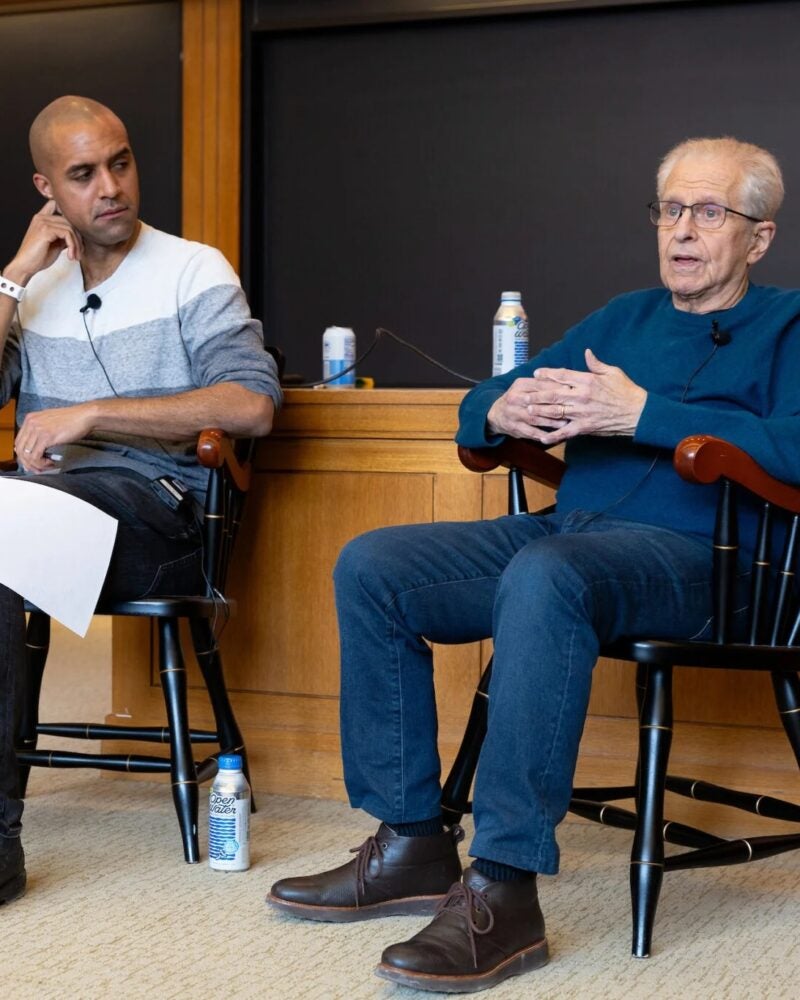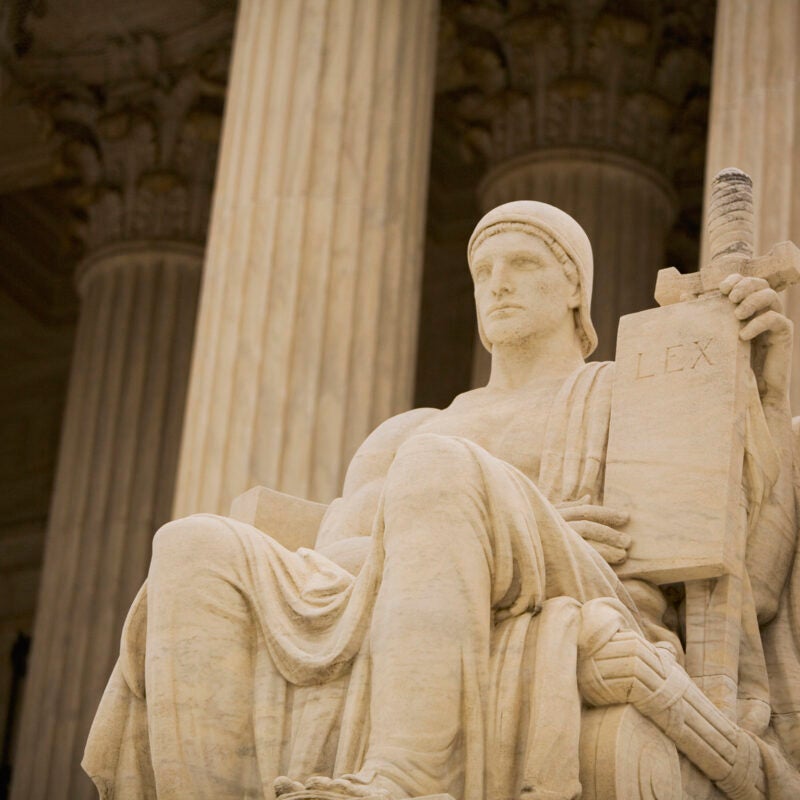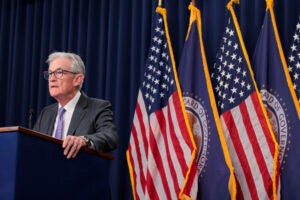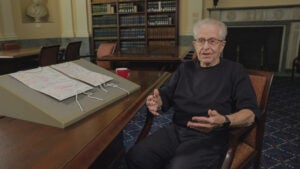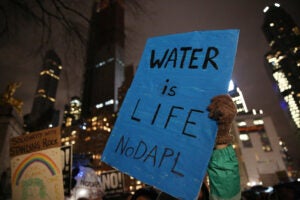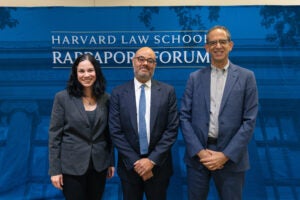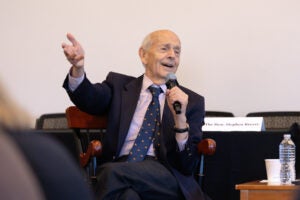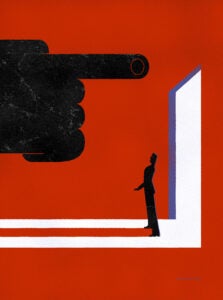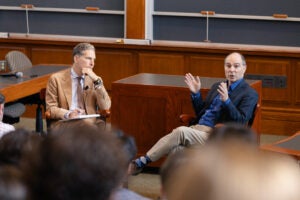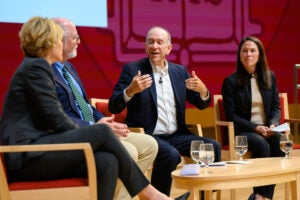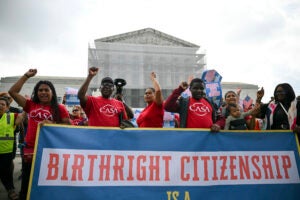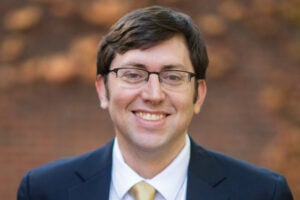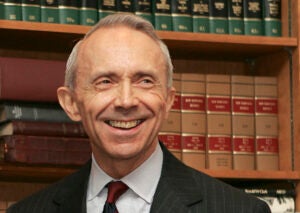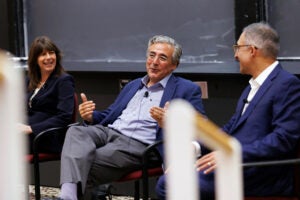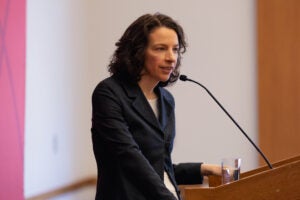Areas of Interest
Constitutional Law
-
Will the Federal Reserve remain independent?
January 15, 2026
Harvard Law Professor Daniel Tarullo argues that, in the upcoming Supreme Court case Trump v. Cook, ‘the independence of the Federal Reserve is really at stake.’
-
‘When I argued cases in the Supreme Court…’
December 10, 2025
Laurence Tribe ’66 outlines his unique and colorful process for preparing for oral arguments before the U.S. Supreme Court
-
What happens when ‘thou doth protest too much’?
November 12, 2025
UCLA Law Professor Eugene Volokh and Harvard Law School Dean John Goldberg discuss emerging trends in protest and public pressure civil claims.
-
At the Harvard Law School Rappaport Forum, experts discussed the topic of educational opt-outs after the Supreme Court's decision in Mahmoud v. Taylor.
-
The challenge to the judiciary from a rising executive branch
October 16, 2025
A Harvard Law Review symposium examines the growing obstacles facing the judiciary, and the tools courts have to confront them.
-
How much power does the president have to dismiss executive branch officials? From the founding era to today, the answer is ever evolving
-
What is Congress allowed to do?
September 25, 2025
Scholar Richard Primus reframes the oldest constitutional question, on enumeration of powers.
-
Harvard Law experts weigh in on climate law ‘retrenchment’
September 25, 2025
Attacks on statutes and regulations are unprecedented, panelists say during Harvard Climate Action Week.
-
How Supreme Court may get chance to re-examine landmark climate ruling
September 18, 2025
The Supreme Court is expected to get a chance to take a second look at a landmark 2007 decision that paved the way for federal regulation of greenhouse gas emissions from motor vehicles, power plants, and other sources.
-
Frozen in Time
September 10, 2025
Jill Lepore’s new book, a history of the U.S. Constitution, explores the consequences of its effective unamendability
-
Religious minorities won key Supreme Court cases on freedom of speech, assembly, and more, says Harvard Law expert
August 28, 2025
Josh McDaniel of Harvard Law’s Religious Freedom Clinic argues that religious plaintiffs help secure secular rights.
-
Is more partisan redistricting coming to a state near you?
August 6, 2025
Harvard Law Professor Nicholas Stephanopoulos explains the national laws at stake in the Texas gerrymandering dispute.
-
Supreme Court decision ‘an enormous assistance’ to plaintiffs seeking relief via class action, says Rubenstein
July 31, 2025
Harvard Law Professor William Rubenstein explains why class action lawsuits may replace universal injunctions as the hot legal tool for challenging federal policy.
-
Richard Re, an expert in federal courts, constitutional law, and criminal procedure appointed professor of law
July 16, 2025
Richard Re, a leading expert on constitutional law, federal courts, and criminal procedure, joined the Harvard Law faculty as a professor of law on July 1.
-
‘He Was a Great Judge’
May 10, 2025
David H. Souter ’66,, who had served on the Supreme Court for more than 19 years until his retirement in 2009, died May 8
-
When arguing cases before Supreme Court is your job
April 10, 2025
Former solicitors general recall what it’s like representing the U.S. government amid shifts on the SCOTUS bench.
-
Are we all purposivists now?
April 3, 2025
At Harvard Law’s 2025 Scalia Lecture, Judge Rachel Kovner argues that ‘purposivism is not dead, and it coexists with textualism on the Supreme Court today.’
-
Fighting for Personal Liberties
March 31, 2025
Kirby West, a 2024 Wasserstein Fellow, is passionate about defending Americans from what she sees as government overreach
